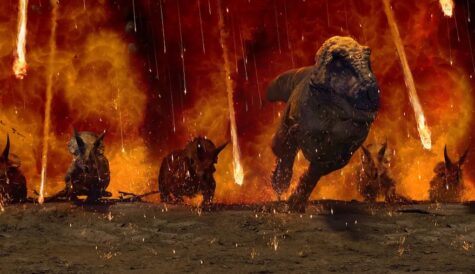
After more than 35 years of operation, TBI is closing its doors and our website will no longer be updated daily. Thank you for all of your support.
TBI Weekly: Why 2024 could look rather like 2014 as streamers hunker down
It’s almost a decade since Amazon Prime Video struck a pact with the BBC that kept Ripper Street on the air. As the SVOD rollercoaster delivers its latest banking turn, Richard Middleton explores whether we’re returning to the early days of streaming.
Streaming has lost its way, that much is clear.
Not, of course, if you are looking a decade or two into the future, once linear television has been consigned to the history books and the world’s viewers have all become disparate entities watching whatever we want, when we want to, all the time.
But in the medium term, it is becoming increasingly clear that making the sums add up for a global streamer – particularly one that hails from the US – is a tough task and an even harder business proposition.
This week, it was Disney chief Bob Iger’s turn to point this out: in his words, the streaming environment is “very, very tricky right now.”
Growth to sloth
A year ago, Disney was being hailed as the golden child of the streaming wars, doling out subs growth every quarter, even if there were always questions around the impact of its Disney+ Hotstar business in India.
Now, however, subs are stagnant and it has been forced to join its fellow US studios in cutting staff and content. Moreover, the deadline facing the Mouse House over its potential $9bn acquisition of Hulu looms as a rather sinister cloud over the Magic Kingdom.
“Before we make any big decisions about our level of investment and our commitment to that business, we want to understand where it could go,” he said. But it was what came next that seems to be setting the pretext for the next few years in streaming.
“We’re at an interesting point in the world, from a media perspective, where a lot of people are still getting linear programming and while I have said publicly that I don’t think the future of linear is very bright and eventually everything will migrate toward streaming, we’re not quite there yet.”
Profit & loss
Disney+ needs “a pricing strategy that makes sense”, he said, and the implication is clear: the current model doesn’t work. As a result, there will be more quality and less quantity, or at least the same level of quantity at less cost, Iger hopes. There will also be more openness to third party sales.
Warner Bros. Discovery was the first to make moves on this front under the guidance of David Zaslav, as swinging cuts slashed staff and content, but all the US studios have followed suit.
Iger is now looking at trimming the content spend (and staff levels) for Disney, while over at Paramount, it’s all about keeping a close focus on franchises – and making the most of Showtime.
Where once there was vision and, perhaps, strategy, now there is flexiblity and reality.
Streaming has to pay its way. Netflix was among the first to find this out and its share price history reflects this realisation. It is now fighting back, although still only at 2018 levels, and this is the streamer that is making profits.
For others, such as Apple TV+ and Amazon, the game is slightly different. Amazon, of course, is one of those that doesn’t really have to play by the same rules as the US studios because of its retail giant owner.
But its deal for Ripper Street nine years ago – resurrecting the show, as it did today with HBO Max’s Batman: Caped Crusader – is a neat example of how streamers began playing the game, cooperating and testing the waters.
The show’s third season was co-funded by the streamer and the BBC, with US cable channel BBC America co-producing. BBC1 in the UK aired it a few months after its streaming debut, and BBC Studios (then BBC Worldwide) handled international sales.
It was a deal that, above all, seemed to make financial sense (at least until the plug was finally pulled two years later amid declining ratings). And it is such pragmatic approaches that we now seem to be returning to almost a decade later.





